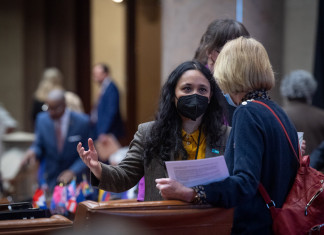The DCIDA would facilitate any agreement between the school district, municipalities, developer, and hospital, Maloney said. However, she said she had not received an official proposal in writing prior to the village’s denial of the PILOT, and has received nothing since.
It is unclear whether the school district was interested in PILOT discussions. A request for comment from district officials was not returned.
Since Gov. Andrew Cuomo signed the property tax cap in 2011, schools, like municipalities, have been limited in how much money they can levy from residents within the district.
The law affects school districts differently than municipalities. Though local governments are also largely funded through property tax revenue, overriding the tax cap requires a 60 percent majority of their governing boards.
School districts, however, put their budgets to a public vote. This, in theory, means reaching the necessary super-majority to override the cap is more difficult.
The controversy over the PILOT, which was requested by Kirchhoff in February, was triggered by a March 28 letter to The Observer from former hospital board member John C. VanWormer. He questioned the need for a PILOT as well as the relationship between the developer and Health Quest.
In response, Denise George, the interim co-CEO of Health Quest, wrote a letter to the editor saying that there may no longer be a need for a PILOT, and that the hospital is exploring alternative methods of funding that would allow the hospital to own the wing entirely. Such action may “obviate the need for the PILOT,” George wrote.
Health Quest’s Manager of Public Relations Sylvia Murphy declined to expand on the other potential ways to fund the wing. “There is no additional update at this time. We are still exploring other funding options,” Murphy told The Observer earlier this month.
Murphy did not respond to a request for comment after the PILOT was denied, nor did Kirchhoff Properties.







Facebook Comments